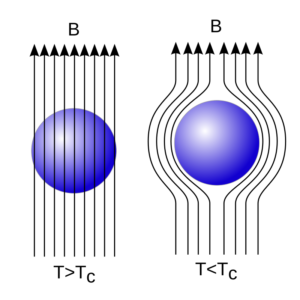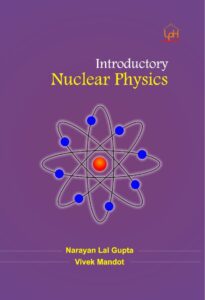Bose Einstein Statistics
- It is applied to Boson or Bose particles, i.e. indistinguishable particle with integral spin
- Particles are indistinguishable from each other.
- Each cell of ith quantum state may contain 0, 1, 2, …, ni particles.
- Total number of particles of system remain constant, n = Σni = constant
- Sum of energies of all the particles in the different groups taken together i.e., total energy of the system remain constant E = Σniεi = constant
- Particles are indistinguishable from each other.
- Consider a system of n independent identical particles.
- These particles be divided into quantum groups or levels such that
- Energy levels ε1, ε2, ε3, …εi
- Degeneracies g1, g2, g3, …gi
- Occupation number n1, n2, n3, …ni
- Consider a box, divide it into gi sections, distribute particles among them.

- There are gi ways to choose the sequence of compartments.
- After it remaining (gi – 1) compartment and ni particles i.e., total (ni + gi – 1) particles can be arranged by (ni + gi – 1)!
- Total number of ways of distribution = gi (ni + gi – 1)!
- Particles are indistinguishable from each other.
- The distribution derived from one another by permutation do not produce different state.
- Required number of ways
- Total number of ways in which n1 particle in state of energy ε1, n2 particle in state of energy ε2, …..
- According to the postulates of a priori probability of eigen state
- Sterling approximation,
log x ! = x log x − x
or log ω = Σ { (ni + gi) log (ni + gi) − (ni + gi) − ni log ni + ni − gi log gi +gi} + log k
or log ω = Σ { (ni + gi) log (ni + gi) − ni log ni − gi log gi} + log k
or δ log ω = Σ [(ni + gi) {1/(ni + gi)} δni + {log (ni + gi)} δni − ni (1/ni) δni −(log ni) δni]
or δ log ω = Σ [log (ni + gi) −(log ni)] δni
or δ log ω = − Σ [log {ni /(ni + gi)}] δni
- For maximum probability
δ log ω = 0
∴ Σ [log {ni /(ni + gi)}] δni = 0 …(1)
- Other conditions are
n = Σ ni = constant
or δn = Σ δni = 0 …(2)
and E = Σ ni εi = constant
or δE = Σ εiδni = 0 …(3)
- Lagrange’s method of undetermined multiplier, (1) + (2) × α + (3) × β
Σ [log {ni /(ni + gi)} + α + βεi ] δni = 0
- But δni is arbitrary
∴ log {ni /(ni + gi)} + α + βεi = 0
or log {1 + (gi / ni )} = α + βεi
or 1 + (gi / ni ) = exp (α + βεi )
or (gi / ni ) = exp (α + βεi ) − 1
or ni = gi / [exp (α + βεi ) − 1]


